Trekking in North East India is a fantastic way to explore nature, mountains, and remote villages. The region offers some of the best trekking routes, catering to various difficulty levels. Trekkers can experience diverse landscapes, dense forests, and pristine rivers. Home to high peaks and challenging trails, it is perfect for adventure seekers. Here are the top treks in North East India you should consider for an unforgettable experience.
10 Best Points For Trekking In North East India
Explore the top trekking trails in North East India, offering adventure through mountains and forests:
1. Sandakphu Trek
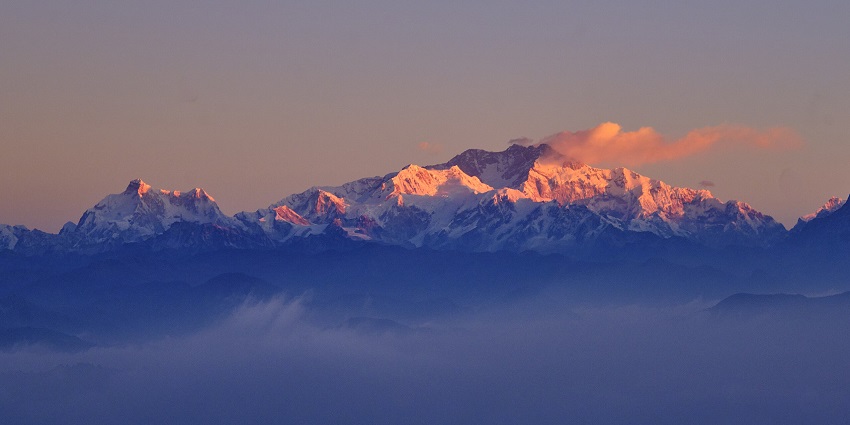
Photo: Firojali.art / Wikimedia Commons
Sandakphu Trek is one of the best trekking routes in North East India, where trekkers can see four of the world’s highest peaks, including Mount Everest and Kanchenjunga. The trail passes through forests, bamboo groves, and rhododendron trees, which bloom in spring. Along the way, trekkers can meet local Sherpa and Rai communities and learn about their traditions. The trek can be challenging due to steep climbs, so proper trekking shoes and warm clothing are necessary.
Best Time To Visit: March – May; October – December
2. Goecha La Trek, Sikkim
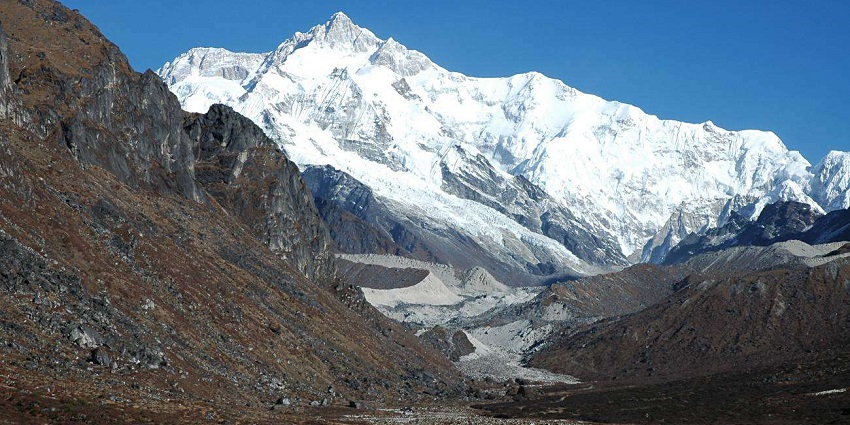
Photo: Carsten.nebel / Wikimedia Commons
Goechala Trek in Sikkim is one of the top treks in North East India, and it is known for its view of Mount Kanchenjunga. The trail goes through thick forests with oak and rhododendron trees, home to red pandas and Himalayan monals. The Lepcha people live in villages along the route, and trekkers can learn about their culture. This trek requires good fitness as some sections are steep and high altitudes. A good backpack, trekking poles, and layered clothing are essential. First-time trekkers should carry dry food and energy bars, as food stalls are not available everywhere.
Best Time To Visit: April – June; September – November
3. Kanchenjunga Base Camp Trek, Sikkim
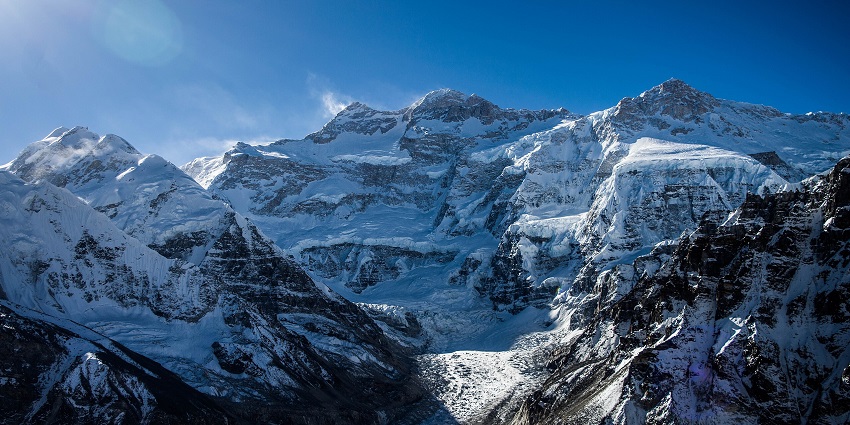
Photo: Nir gurung / Wikimedia Commons
Kanchenjunga Base Camp Trek is one of the most difficult trekking destinations in North East India, taking adventurers to the base of the third-highest peak in the world. The trek passes through alpine meadows and high-altitude forests where blue sheep and snow leopards are sometimes seen. The region is home to Tibetan and Nepali communities, and their traditional way of life can be observed in villages along the trail. Since the trek is long and tiring, proper acclimatisation is needed.
Best Time To Visit: March – May; September – November
4. Green Lake Trek, Sikkim
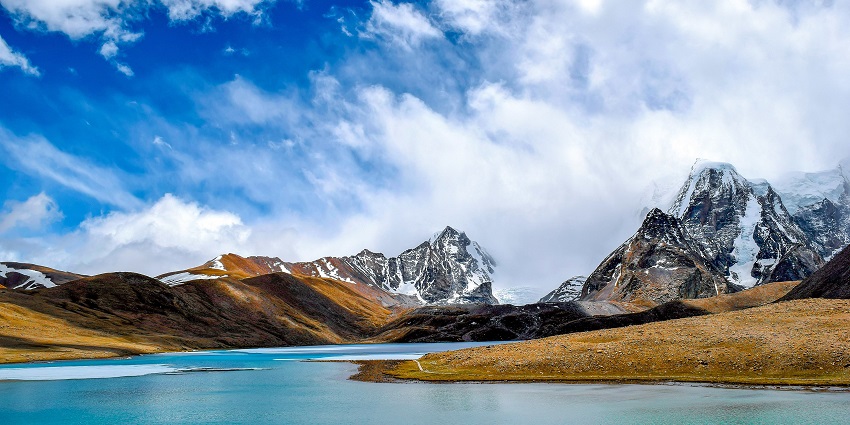
Photo: Mayurisamudre / Wikimedia Commons / Image For Representation Only
Green Lake Trek is an offbeat trekking destination in North East India, leading to a remote glacial lake near Mount Kanchenjunga. The trek is filled with dense forests of pine and rhododendrons, where musk deer and Himalayan tahrs can be spotted. The trail passes through Sikkimese villages, where locals follow Buddhist traditions, and small monasteries can be seen along the way. The trek is long and challenging, so first-time trekkers should be well-prepared with proper gear.
Best Time To Visit: April – June; September – November
5. Singalila Trek, Sikkim
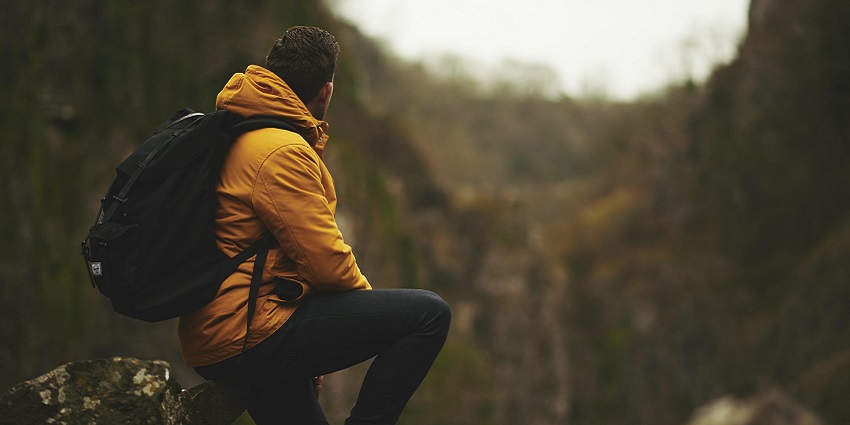
Photo: Pexels / Pixabay / Image For Representation Only
Singalila Trek is one of the best trekking routes in North East India, following the Singalila Ridge. The trek provides views of Mount Everest and Kanchenjunga while passing through rhododendron forests and high-altitude grasslands where yaks graze. The Sherpa and Bhutia communities live in villages along the trail, and trekkers can interact with them to understand their traditions. The trek involves long walks and is one of the most popular treks in Northeast India.
Best Time To Visit: March – May; September – November
6. Living Root Bridge Trek, Meghalaya
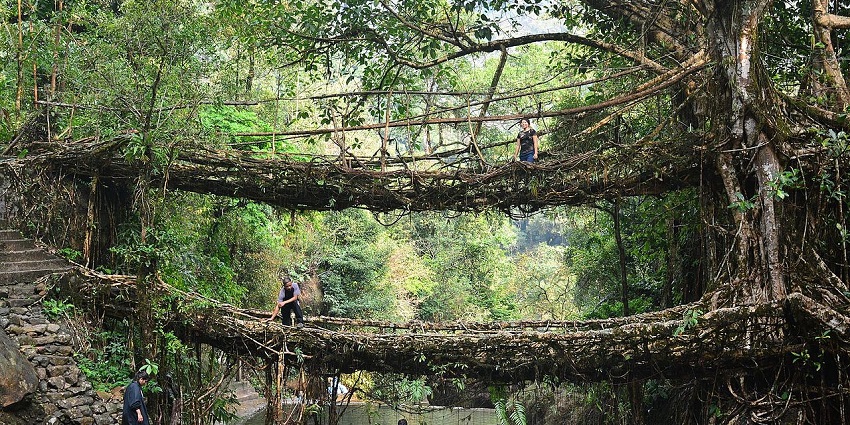
Photo: Chiranjeeb Baul / Wikimedia Commons
Living Root Bridge Trek in Meghalaya is a short and unique trek to see bridges made from the roots of ancient trees. The Khasi tribe creates these bridges, and their skill in growing and maintaining them is passed down through generations. The trail goes through dense forests filled with ferns and wildflowers, where small waterfalls can be seen. The steps are steep, so good footwear is necessary. First-time trekkers should carry drinking water, a raincoat, and snacks, as the humid weather can make the trek tiring.
Best Time To Visit: October – April
7. Dzongri Trek, Sikkim
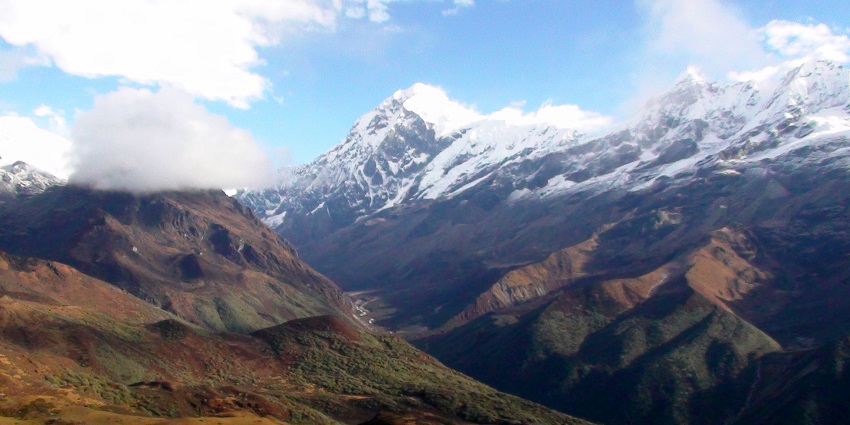
Photo: Anupam2015 / Wikimedia Commons
Dzongri Trek is one of the most popular trekking destinations in North East India, taking trekkers to a viewpoint with a close view of Kanchenjunga. The trail goes through rhododendron and oak forests, where Himalayan black bears and pheasants are sometimes seen. The trek also passes through villages of the Lepcha community, where traditional wooden houses and Buddhist prayer flags can be seen. For this trek in North East, walking sticks are helpful as the trek has steep sections,. First-time trekkers should carry a windproof jacket, a good pair of gloves, and sunscreen.
Best Time To Visit: March – May; September – November
8. Tholung Trek, Sikkim
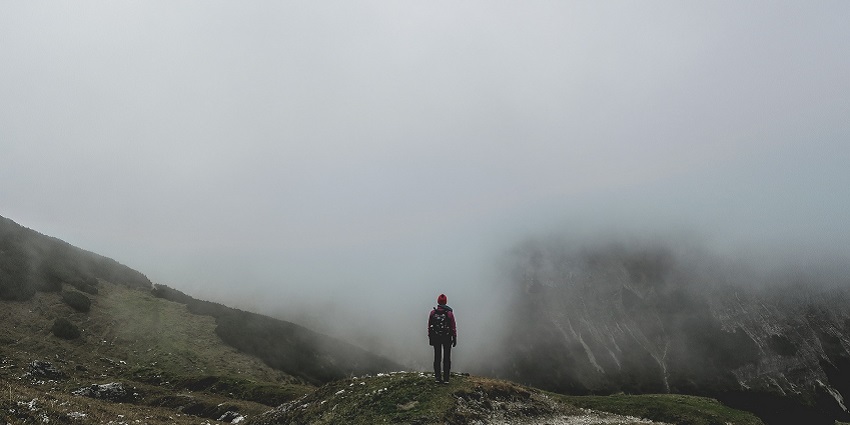
Photo: Pexels / Pixabay / Image For Representation Only
Tholung Trek in North Sikkim is a moderate trek passing through forests, waterfalls, and remote monasteries. The forests have many medicinal plants, and red pandas and Himalayan griffons are sometimes spotted. The trek also takes visitors to Tholung Monastery, where old Buddhist scriptures and artefacts are preserved. The weather can change suddenly, so trekkers should carry waterproof jackets and warm layers. First-time trekkers should pack dry food, a power bank for charging devices, and a first-aid kit.
Best Time To Visit: April – June; September – November
9. Tinjure Trek, Gangtok
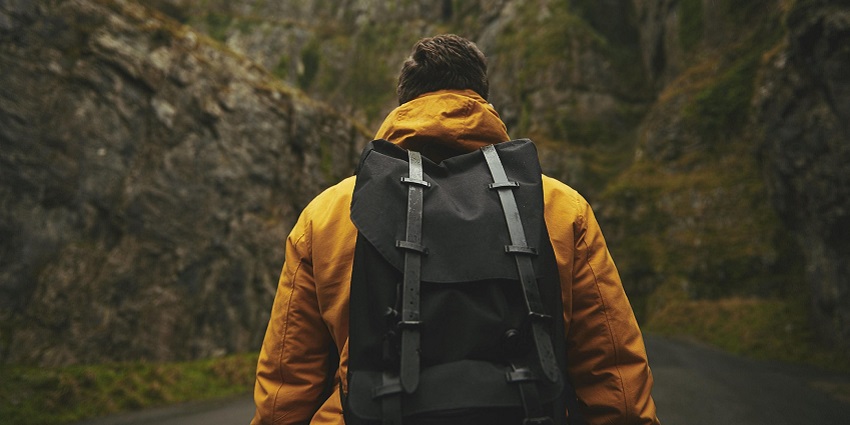
Photo: Pexels / Pixabay / Image For Representation Only
Tinjure Trek is a short and easy trek for trekking in Gangtok, suitable for beginners. The trail passes through forests filled with wildflowers and bamboo groves, where birds like Himalayan bulbuls can be spotted. Also, this is one of the most underrated but beautiful places to visit in Gangtok. Along the way, trekkers can see small settlements of local Bhutia people, who follow Buddhist customs. The trek is not very demanding, but comfortable clothing and good walking shoes are necessary. First-time trekkers should carry light snacks, a small backpack, and a cap to protect them from the sun.
Best Time To Visit: October – May
10. Nohkalikai Falls Trek
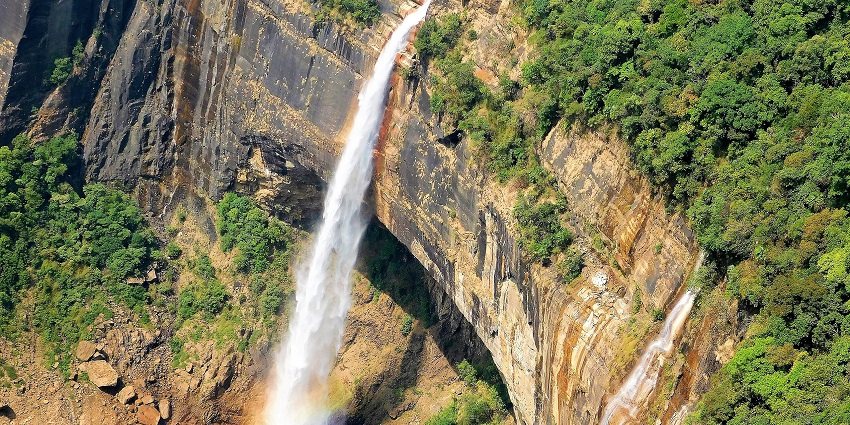
Photo: Jyotishkardey / Wikimedia Commons
Nohkalikai Falls Trek is a short and exciting trek in Meghalaya, leading to one of the highest waterfalls in India. The trail goes through forests where rare orchids and butterflies can be found. The Khasi people live in villages along the route, and their traditional homes and lifestyles can be observed. The trek is easy, but the steps can be slippery, so wearing good shoes is necessary. First-time trekkers should carry water bottles, a light rain jacket, and a small camera to capture the waterfall.
Best Time To Visit: October – April
Trekking in North East India offers adventure and cultural immersion. Each trail features diverse landscapes, from towering mountains to ancient forests and remote villages. Trekkers can experience local traditions along the way. With proper planning and the right gear, the journey becomes enjoyable. Embark on an unforgettable trekking adventure in North East India with TripXL.
Cover Photo: Aaron Ostrovsky / Wikimedia Commons


 WhatsApp
WhatsApp
 Twitter
Twitter









